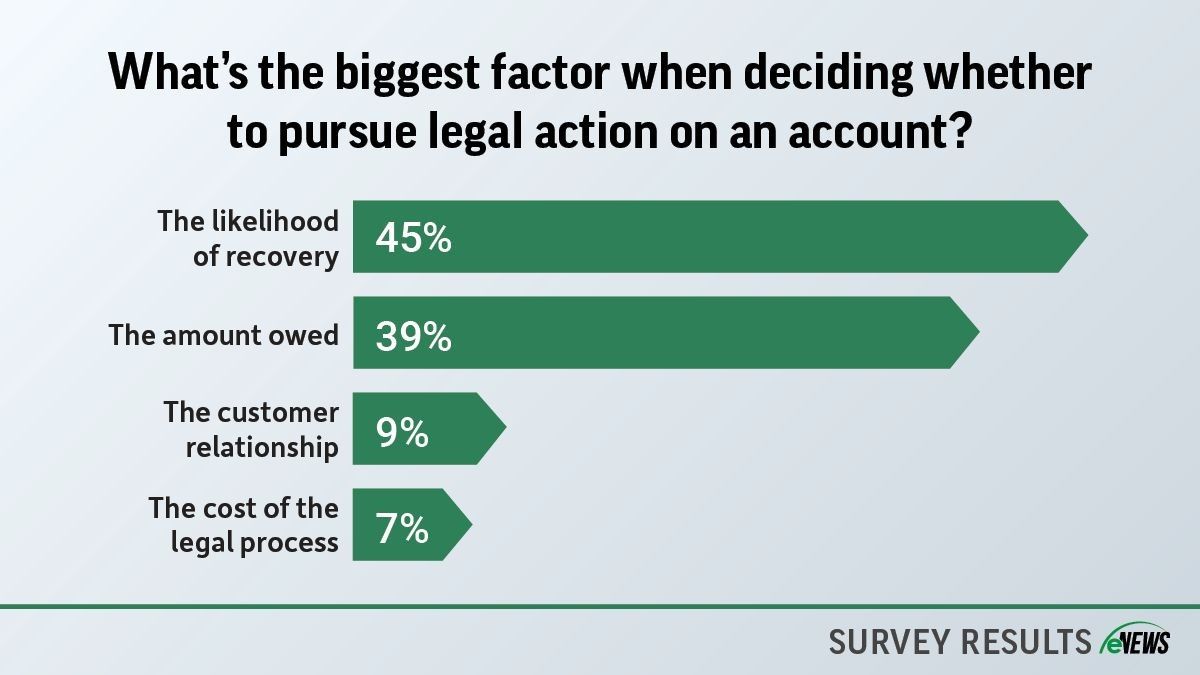Education, eNews
Professional Certifications: Value Beyond the Letters

Every journey to success begins with education. Whether you aspire to secure a significant promotion, a raise or greater respect in the credit industry, it’s crucial to demonstrate your dedication to your profession. NACM’s Professional Certification Program is a way for credit managers to elevate their careers and showcase their expertise. An independent study of NACM members revealed those who hold certifications average 6% higher salaries than those who do not, and many credit managers hold more than one certification.
Certifications also provide credit professionals with immediate industry recognition, which can open doors to new people and professional opportunities. Through shared learning in the Professional Certification Program, credit managers can develop important and lasting professional and personal relationships.
“What makes our program stand out is the strong network you build,” said Tracey Lerminiaux, director of education services at NACM National (Columbia, MD). “It’s all about connections, mentorship and ongoing support. We’re not just helping you earn a designation—we’re helping you build a thriving credit career.”
Credit Business Associate (CBA)
The Professional Certification Program provides specific credit knowledge beyond what a collegiate degree can provide. It is a way for credit managers to showcase excellence and mastery for different disciplines in their field. For example, the CBA is an academic-based designation, which entails the mastery of three business credit-related disciplines: Basic Financial Accounting, Financial Statement Analysis 1 and Business Credit Principles.
It’s not just the subject matter that is specific, but the on-the-job experience that is often included in the course material. “The instructors are actually in the credit industry,” said Kevin Stinner, CCE, CCRA, credit manager at JR Simplot, Inc. (Loveland, CO), whose direct manager encouraged him in his designation journey for his CBA—eventually leading to his CCE. “So, when you have a question, they are speaking from a position of experience, not from a position of theory as what you get in a university.”
Certified Credit and Risk Analyst (CCRA)
The CCRA designation signals mastery in the analysis and interpretation of financial statements and the ability to make informed credit risk assessments. The prerequisites for this certification are: Basic Financial Accounting, Financial Statement Analysis 1 and Financial Statement Analysis 2: Credit and Risk Assessment. The CCRA is an advanced financial designation that can stand alone apart from your journey to the CCE.
Anthony Mitchell, Jr., CBF, CCRA, credit manager at Nutrien Ag Solutions, Inc. (Pittsford, NY) says his CCRA designation validates his 30 years of experience in credit. “There were a couple new skills that I picked up and I learned how I can do certain tasks differently, like my write-ups,” he said. “This was based on the material provided by the instructor and what we were given as our case studies for the final exam.”
Credit Business Fellow (CBF)
Credit professionals are in a constant state of learning. After earning each designation, trade creditors are not only building their credit knowledge but refining their skills so that they can better adapt to any changes that come their way. Rebekah Hartley, CBF, CCRA, assistant credit manager at Helena Agri-Enterprises, LLC (Collierville, TN) recently earned her CBF, an academic and participation-based designation which illustrates that achievers are knowledgeable about and have contributed to the field of business credit by first having earned the CBA designation as well as having completed additional course work.
The designation’s focus on business and credit law has helped Hartley and her company during volatile economic climates. “When I started in this industry just three years ago, I never thought I would be getting a glimpse into the life of a lawyer, but the CBF designation has shined a light on how much that is the case.”
Certified Credit Executive (CCE)
The CCE is NACM’s highest designation and is widely respected in the credit industry. CCE holders average 9% higher salaries than those without certification. CCEs are required to recertify every three years, further signifying their commitment to continuing education, self-improvement and the advancement of the business credit profession.
Getting certified in the credit industry isn’t just about paper qualifications—it’s about credibility. The knowledge and skills gained provide credit professionals with the confidence and the ability to advance in different aspects of their career. Earning the CCE designation, an executive-level designation with a focus on accounting, finance, domestic and international credit concepts, management and law was a rewarding accomplishment for Scott Woitas, CCE, CICP, senior manager credit and collections at Donaldson Co Inc. (Minneapolis, MN). “It gave me a better understanding of the subject matter, especially through the case study examples,” he said. “Now, I look forward to learning more as I tackle different roles for my company and that is very exciting for me.”
Certified International Credit Professional (CICP)
More and more credit professionals are based in or working with customers overseas. To keep up with the ever-changing landscape of global trade, credit professionals must sharpen their international credit and risk management skills, especially as the C-suite turns to the credit team for guidance on global trade. Credit managers have the knowledge to help their businesses thrive in an increasingly connected and modern global economy.
FCIB’s International Credit & Risk Management (ICRM) course is a 13-week course with a focus on global and credit risk management, available to entry-level and senior-level professionals. By passing the final exam, credit professionals can earn their CICP designation, signaling a mastery on credit management and risk analysis.
“Earning my CICP not only elevated my credit skills but gave me insight into country and currency risk,” Woitas said. “The best part was getting to interact with some of the students, both U.S. and overseas. I shared my experience with my boss, who took the CICP exam years ago, and he was amazed.”
International Certified Credit Executive (ICCE)
CICP holders are also eligible to earn the ICCE designation, an executive-level designation created for international credit and risk analysis professionals who are ready to make an impact on the world stage by excelling beyond their CICP designation. ICCE holders are expected to participate in their associations by serving on committees, completing surveys and mentoring other credit professionals. They are encouraged to improve their leadership skills by serving as a panelist or speaker.
Colleges and universities don’t offer adequate education to prepare credit professionals for the rigors of the role, said Esther Hale, ICCE, senior analyst and treasury-global credit at Phillips 66 Company (Bartlesville, OK). “Attending the classes associated with certification provides a comprehensive education credit professionals are unable to access elsewhere.”
“The ICCE designation and international credit management in general through the Finance, Credit & International Business Association (FCIB) embraces the complexity of international trade along with credit and risk management essentials,” said Timothy Bastian, ICCE, senior director of corporate risk at Western Oilfields Supply Company dba Rain for Rent (Bakersfield, CA).
To learn more about NACM’s Professional Certification Program, visit our website or contact Tracey Lerminiaux at TraceyL@nacm.org. You also may be interested in our upcoming Mentors & Milestones program on 5 Things to Kickstart Your Educational Journey. This is your last chance to participate in NACM Connect’s Compensation Survey. The deadline to complete the survey is Nov. 3 and participants will receive the results for FREE.cs, view the October 2023 report. CMI archives also may be viewed on NACM’s website.





